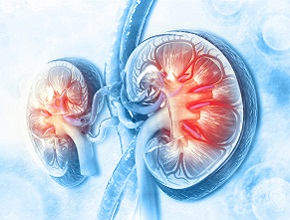Felix Knauf, MD, is a professor of nephrology at the Charité – Universitätsmedizin Berlin, Germany, and an assistant professor adjunct at Yale University.
What is the most relevant evidence from studies examining the relationship between the gut microbiota and common kidney or kidney-related diseases?
During the last 3 to 4 years, we’ve had 2 larger studies that specifically looked at the microbiome composition and associations with kidney stone disease. And the conclusions of these studies are that there is a distinct microbiome, a distinct signature that is associated with an increased risk of stones.
This was performed both in children and in adults, and it was also shown that these differences in the microbial composition of the gut are also associated with a distinct metabolome, which means that these bacteria seem to secrete or release substances that eventually end up in the urine and may predispose to stone formation.
It is important to note that these studies are association studies, so they don’t prove causality. To my knowledge, there is no clinical trial at this point that has shown that changing the microbiome—for example, by providing probiotics—has an impact on hard outcomes such as the recurrence of stones. This still needs to be done.
 English
English
 Español
Español
 українська
українська








